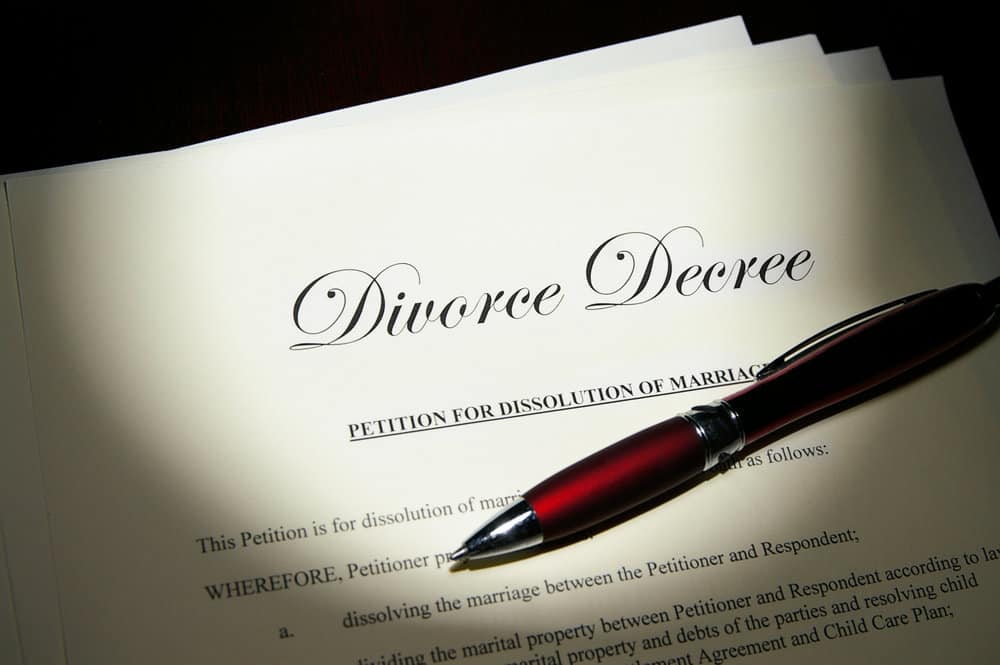The term “divorce” generally signals something final: the legal end of a relationship. Once a divorce has been finalized in court, both parties typically part ways and start to move on with their lives.
But does it end there? While it’s not unusual for couples to reunite after a divorce, can the divorce case be reopened? Could the divorce decree terms be changed? Divorce can be a complex matter, and in this blog post, we’ll explore the possibility of revisiting a divorce once it’s final and the steps you can take if you decide that a divorce isn’t final after all.
Reopening a Final Divorce
In most circumstances, divorce is considered final. But as everyone’s circumstances are unique, things may need to change occasionally. The terms of a divorce can become outdated or may even become impractical due to changing circumstances. But just because it’s possible to reopen a final divorce, this doesn’t make it easy.
Divorce laws are complex, but there are legal avenues that individuals can explore to help them amend their divorce decree.
Changing a Final Divorce Decree
A divorce decree, also known as a divorce judgment, is a court order that outlines the terms of your divorce. This can include individual elements such as child custody, spousal support, and any division of assets and debts.
Once it has been issued, it is legally binding, and both parties are expected to abide by it. But in time, a change in circumstances could mean that the terms are no longer practical or fair, leading to one or both parties wanting to make changes.

Exploring Divorce Reopening Options
In the US, you have several options to pursue if you want to reopen a divorce case:
Appeal
An appeal can be made if you believe there was a significant error in the original divorce judgment. You can appeal the final decision in a bid to change the outcome. However, appeals can be time-consuming and expensive, and success is only sometimes guaranteed.
Motion to modify
A motion to modify can alter some aspects of a divorce decree, such as child custody or child support. For this to be done successfully, there usually needs to be a substantial change in circumstances to persuade the court.
Fraud or misrepresentation
If, for some reason, you believe that your partner committed fraud or misrepresentation during court proceedings, you may be able to reopen your divorce case. Some qualifying examples include concealing assets or lying about their financial situation.
If you can present sufficient evidence, the court may modify the divorce decree.
 Modifying a Final Divorce Order
Modifying a Final Divorce Order
Modifying a final divorce order doesn’t have to mean completely reopening the case. Courts have a degree of understanding that circumstances change and will consider modifications if there are valid reasons for doing so. Some of the scenarios that could warrant a modification include:
A change in income
Someone’s financial situation can improve for worse or for better, and any significant change could have a big impact on child or spousal support arrangements.
Relocation
One parent may need to move location due to a new job, family arrangements and other legitimate reasons. Because of this, custody arrangements may need to be modified, and visitation schedules may need adjustment.
Child’s changing needs
As children grow and evolve, their custody arrangements may need to be modified. A modification to the divorce order could be made to serve the best interests of the child.
How to Reopen a Divorce Case
There are several steps you can take to reopen a divorce case:
Consult an attorney
Consulting with an attorney specializing in family law will help you ensure your case is carefully assessed so the right course of action can be taken. An experienced law professional will be able to guide you through the process so that you can understand what to expect.
Gather evidence
You will need to gather all the necessary evidence to support your case, including financial records, proof of change of circumstances or evidence of fraud.
File a motion
Your attorney will file a motion with the court explaining why you ask for the case to be reopened or modified.
Attend a hearing
The court will schedule a date to review your case. This will give both parties the chance to present their arguments and evidence.
Await a decision
The court will decide, based on the evidence presented, in line with applicable laws. The outcome may change the divorce decision, or the court could decide to keep the existing agreement in place.
Reconsidering a Final Divorce Decision
It’s important to remember that reopening a divorce case is not a guarantee that the outcome will change. Courts are usually cautious about modifying a divorce decree and may only do so if there is a compelling reason and it’s in the best interests of the parties involved, especially if children are involved.
Is it Possible to Change a Divorce Finalization?
A divorce finalization doesn’t have to be the outcome of a divorce. While challenging, finalization may be changed if the court believes relevant circumstances exist. The legal system contains mechanisms to address significant changes that may occur after a divorce is finalized. Proceedings aren’t taken lightly, and it’s essential to seek professional legal help to boost your chances of success.
Revisiting a Divorce Settlement
If you believe you have grounds to revisit a divorce settlement, then it’s essential to get some legal counsel. A professional lawyer with experience in family law can give you the help you need to make your case and present evidence to change your divorce order.
Life is unpredictable, and while most divorce cases end with the finalization, some situations can leave a settlement to be reopened and modified. With specialist legal help, you can return to court after a final divorce and perhaps have a different outcome.


 Modifying a Final Divorce Order
Modifying a Final Divorce Order

